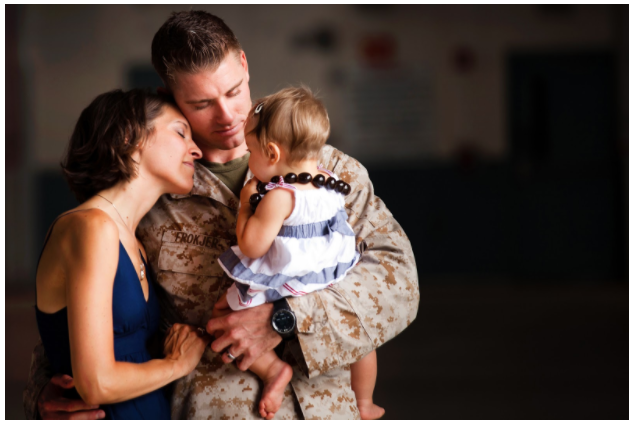When the time has come the time has come. But leaving the military is one of the most life-changing experiences any forces family can ever experience. We’ve seen it first hand. When you’ve lived this life, in this world, your bond with those around you intensifies; you see, hear and feel the good times and bad times of everyone else in your boat.
A lot of the time, people believe that this separation only affects the soldier, but that isn’t the case. Yes, they have it hardest, but the whole family needs an adjustment period. You may not have pulled on the uniform and stepped out of Chinnock in the middle of a desert but you’ve endured the deployments, experienced the relocations, and met all the other needs too. That’s why civilian life is a shock to everyone.
Whether it’s been three years or thirty-three years, life after the military is one full of opportunity and challenge, for everyone. There is just a lot to prepare for: new job, new location, new home, new routine and new life. It takes some getting used to. But to help you transition that little bit smoother – and help soften some of the bumps in the road – here are some things you ought to know:
Transition Through Family Tradition
Active-duty comes with chop and change and just about everything else that can prevent getting settled. That is where life afterward can really blossom. For the first time in a long time, you can choose where to live and where to lay down some roots. In the military, you know a community like no one else, but the community you live in changes a lot. Use this community experience to help you transition into civvy life. Establish your own lasting traditions. It could be dinner at seven. It could be Friday-night football and nachos. Sunday-dinners every Sunday. Whatever the traditions you want to cherish and value and celebrate, they can help you transition. They can help you go from one routine to another.
Respect That Routine May Follow
For the person that spent another life serving, the routine was everything. Following direct orders was how life was lived. So having freedom can become a pretty hard to adjust to. That is why it is so important for the family to account for this, and help them adjust by establishing a new routine in their home life. Set goals. Have things to do and a time to do them. Most importantly, though, hold their hand when introducing them to the routine you’ve set up at home. They may not know how you run the house, especially if they have been away on deployment. They may not know what time your kids go to bed or what books they like to read. They may not know what time dinner is, what time school starts, where you need to be at what time and what sort of laundry soap you prefer. They may not seem like much to you, but to them, wow, they can feel lost and that can lead to tensions. Be patient. Plan ahead of time. Talk openly. And work as a family.
Depression Is Common For Many Reasons
All too many families – and friends – know about PTSD. But depression and anxiety don’t just stem from being in combat and seeing the horrors of action; it comes from the separation side of things too. Leaving the military behind also means leaving behind job security, brothers, purpose, and camaraderie. What’s more, this new future of freedom and choice can be incredibly overwhelming. There are decisions to be made that can seem overwhelming to make. What military skills do they have that can translate into civilian work? Do they need to go back to school? What are their financial needs? What sort of lifestyle would they like to lead? Who is going to kick them in the butt now that there are no orders to follow? Apprehensions are normal and so is going to a recovery facility for vets. Suffering from stress, PTSD, depression, anxiety and/or apprehension will only make the transition period harder, and place added strain on you as a family, and that is why you should consider seeking help as a unit. Asking for help shows strength, not weakness.
Once A Military Family, Always One
You can take comfort in that fact and it may well be the very thing that helps you transition better as a family. Yes, civilian life will one day become your normal. It will become the life you live, lead and enjoy. However, your time in the military is not done, not unofficially anyway. The people you met, the lessons you learned, the memories you made and the bonds you created; they will all live on in your family. Knowing this can really help you swallow the civilian life pill because, once you realize that you are and always will be a military family, you will realize that there is a huge military community that you will forever be part of.







